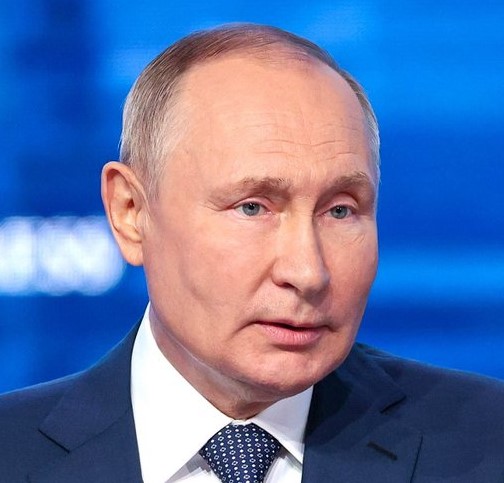Central Bank experts reveal the negative effect of inequality on the Russian economy

With the increase in inequality in the incomes of citizens, the growth of Russian GDP per capita is slowing down. In turn, economic growth leads to a reduction in income inequality. Such a relationship was revealed by experts of the Central Bank in the article “Inequality and economic growth in Russia: econometric assessments of dependencies” (published in the latest issue of the Central Bank’s magazine Money and Credit, RBC read the text).
This two-way relationship is by no means trivial. There are a number of studies deriving the positive impact of inequality on economic growth either for the entire sample of countries or for countries with high and middle income levels (the list of references is given in the article).
There is only a very limited number of publications on the topic of the relationship between inequality and economic growth based on Russian data, researchers from the Central Bank emphasize.
How inequality affects the economy
The authors of the article performed calculations based on a series of indicators of the economy and inequality in Russia from 1994 to 2020, including data for Russian regions. The analysis showed the negative impact of high inequality on the dynamics of per capita gross regional product (GRP) in the long-term, medium-term and short-term time horizons. Depending on the time horizon and the chosen indicator of inequality (in addition to the Gini coefficient published by Rosstat, the researchers used their own variables calculated according to the Russian Monitoring of the Economic Situation and Health of the Population, RLMS, from the National Research University Higher School of Economics), the influence of inequality in a wide range ranges from 0.03 to 0 .4 p.p. annual growth in per capita GRP per standard deviation of inequality.
One standard deviation is the mean square distance from each value of the variable (in this case, income inequality) to the arithmetic mean of all values in the series; actually shows the inherent volatility of a given series of values.
Read PionerProdukt .by Sergey Brin invests in airships. Is there a future for this industry? What awaits the economy and the lira“Despite the low value, we believe that the authorities in Russia need to take into account the negative impact of high inequality on the dynamics of production both in the development and implementation of social policy and in macroeconomic forecasting,” the authors state. Their opinion is personal and does not reflect the position of the Central Bank.
According to Rosstat, the Gini index (shows the degree of income inequality between different groups of the population; the closer the indicator is to 0, the less inequality, the closer to 1, the higher) from 1995 to 2020 changed from 0.387 to 0.406. However, since 2010, the coefficient has generally been decreasing and reached 0.396 in 2022, the lowest value since 2000.
According to the World Bank, the value of the Gini index in Russia is comparable to India and China, but noticeably lower than in Brazil and Turkey.
“Economic growth thus leads to a reduction in inequality. Additional analysis shows that the increase in GDP since the early 2000s was accompanied by a decrease in inequality, and mainly due to an increase in income with a weak intensity of income redistribution from rich to poor households, ”the economists of the Central Bank point out.
Why the income gap is bad
There is no consensus among world researchers about whether inequality affects economic growth negatively and whether economic growth leads to its reduction. However, those who agree with this statement identify several channels of negative impact.
High inequality increases socio-political instability in society. This, firstly, provokes a decrease in investment and business activity due to the risk of crime and social conflicts, and a decrease in the protection of property rights. Secondly, the potential or actual growth of social tension forces politicians to increase social transfers to certain groups of the population. The sources of financing for additional social programs are an increase in the tax burden or government borrowing. The consequence of the latter in some cases is an increase in interest rates in the economy. Declining quality of human capital due to insufficient investment in education and healthpoorer segments of the population: as a result, labor productivity decreases, which negatively affects the growth rate of output. These factors exacerbate the imperfection of the credit market when low incomesand the lack of adequate provision limits access to financial resources for those groups in the population who need them most. Reducing consumer demand: Income concentration among wealthier segments of the population limits the increase in consumer spending, even as society grows in wealth, as wealthy households have a lower propensity to consume. In addition, low-income groups of the population, as a rule, show demand mainly for essential goods and services. As a result, countries with a predominantly poor population are characterized by a simpler structure of the economy, a low share of innovative, high-tech sectors, which leads to weak long-term production dynamics.The authors argue that they did not set out to quantify the effect of changes in inequality on economic growth - they were primarily interested in the direction of influence.
Prospects for Reducing Inequality
Inequality is one of the main brakes on economic growth, as it affects the willingness of the population and businesses to invest, undermines confidence, agrees Dmitry Skrypnik, a leading researcher at the CEMI RAS. “In the current conditions of the sanctions crisis, this factor becomes even more important, since in fact there are no other sources of growth other than domestic investment and trust,” he adds.
According to him, less inequality would only help the economy recover in 2023 and further growth, since the higher level of well-being of the general population would mean more sustainable final demand, which is a factor in long-term economic growth. “The sufficiency of demand is also important for the sustainability of cooperative production chains within the framework of import substitution projects and technological development projects, so the state needs to take into account the goal of reducing inequality not only from the point of view of social justice, but also for economic development within the framework of a comprehensive economic policy,” he notes.
Одним из основных инструментов снижения неравенства в мире является прогрессивность налогообложения, говорит Скрыпник. По его мнению, расширение прогрессивности налогообложения будет способствовать и сбалансированности бюджета, что актуально в условиях сокращения нефтегазовых доходов.
Российско-украинский конфликт стал одним из трех шоков последних лет для глобального перераспределения доходов, говорил в докладе в рамках XXIV Ясинской (Апрельской) международной научной конференции весной 2023 года ведущий экономист Всемирного банка Бранко Миланович. Другие два — это пандемия COVID-19 и торговая война между США и Китаем. По оценке Милановича, антироссийские санкции не только затрагивают экономики вовлеченных стран, но и имеют последствия для всего мира из-за их фрагментации на экономические блоки и роста цен на энергоносители и продовольствие, что увеличивает бедность и неравенство в мире.
Как утверждалось в докладе благотворительной организации Oxfam, подготовленном к Всемирному экономическому форуму в Давосе, 81 богатейший житель мира владеет таким же состоянием, как 50% населения планеты.
Усиливает ли неравенство экономический рост, как в богатых странах, или снижает его, как в России, согласно расчетам ЦБ, зависит от модели экономики, говорит профессор Финансового университета при правительстве Александр Сафонов. «Мы имеем экономическую модель развивающейся страны, основанную еще с 1990-х годов на использовании дешевой рабочей силы (а надо было делать ставку на развитие малого и среднего бизнеса). При этом экспортно ориентированная направленность приводит к неравномерному распределению доходов (рента сосредотачивается в руках небольшого числа людей)», — поясняет он.
В будущем Россию скорее ждет усиление неравенства, полагает Сафонов. Расширение прогрессивной шкалы налогообложения — один из способов это предотвратить, согласен он со Скрыпником: «Прогрессивное налогообложение делает бессмысленным сверхпотребление. Чем больше вы зарабатываете, тем меньше получаете, а государство получает дополнительные средства».
Другие необходимые меры — повышение МРОТ (фиксирование обязательного уровня зарплаты на низком уровне не мотивирует работодателя увеличивать производительность труда, внедрять современные технологии). «Кроме того, нужно бороться с теневой экономикой, а налоговые преступления не должны иметь срока давности. К налоговым преступлениям стоит отнести в том числе необъяснимые расхождения между расходами и доходами», — перечисляет эксперт.
The effectiveness of measures to combat inequality will depend on the balance between the positive impact of social spending and the negative impact of tax increases (or an increase in public debt, for example, for the sake of increasing government social spending), believes Maria Elkina, researcher at the Center for Macroeconomic Research at the NIFI of the Russian Ministry of Finance. Estimates of government spending and revenue multipliers in Russia can help answer this question (although it must be recognized that getting a reliable estimate of them is not easy), she says. A study by an expert from the Bank of Russia devoted to this showed that the multiplier of state revenues over a 5-year horizon is about -1.67, that is, with an increase in the tax burden by 1 rubleoutput will decrease by 1.67 rubles over 5 years. “Next comes the question of the significance of the multiplier for social spending. It seems that the multiplier of transfers to the most vulnerable segments of the population should be quite large. Therefore, if the system is set up effectively, then the effect of these transfers should generally be positive,” the expert suggested. And she summed up: in any case, ensuring equality of opportunity should be a priority of state policy and will have a positive effect on long-term economic growth.























































